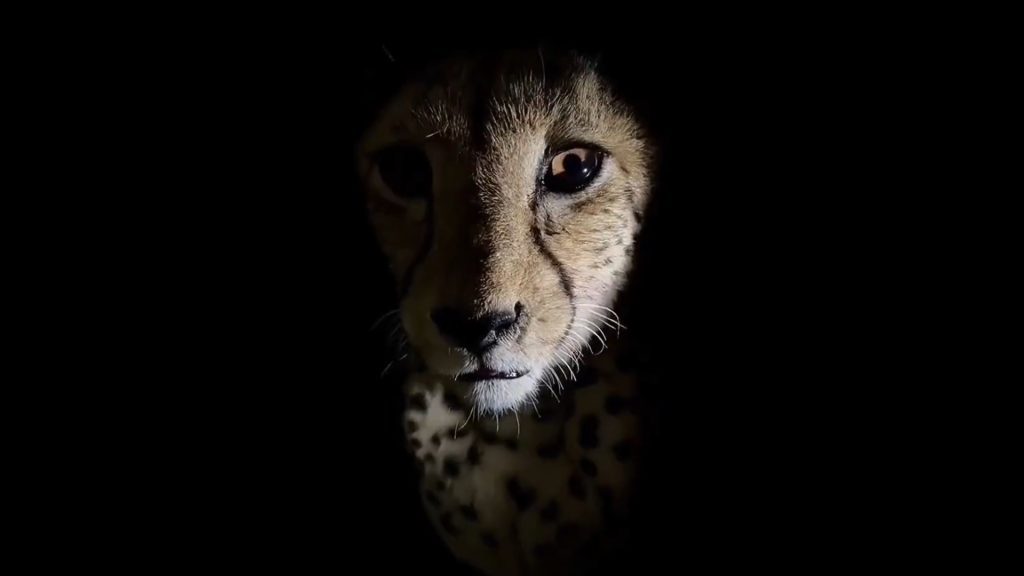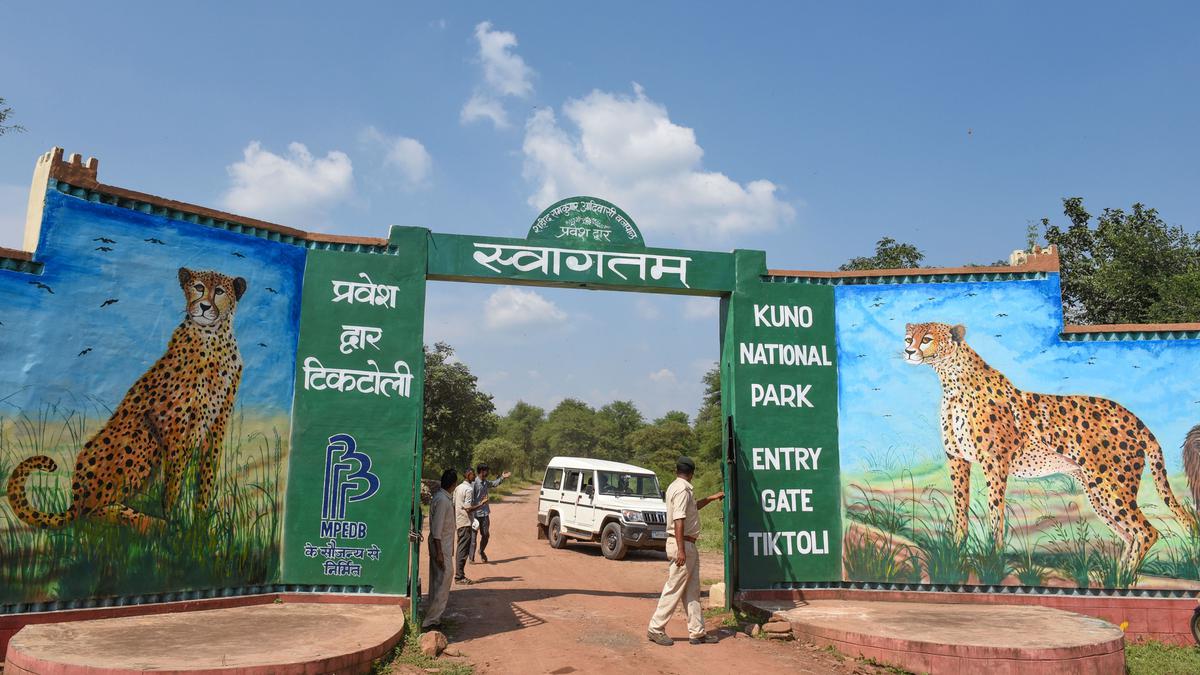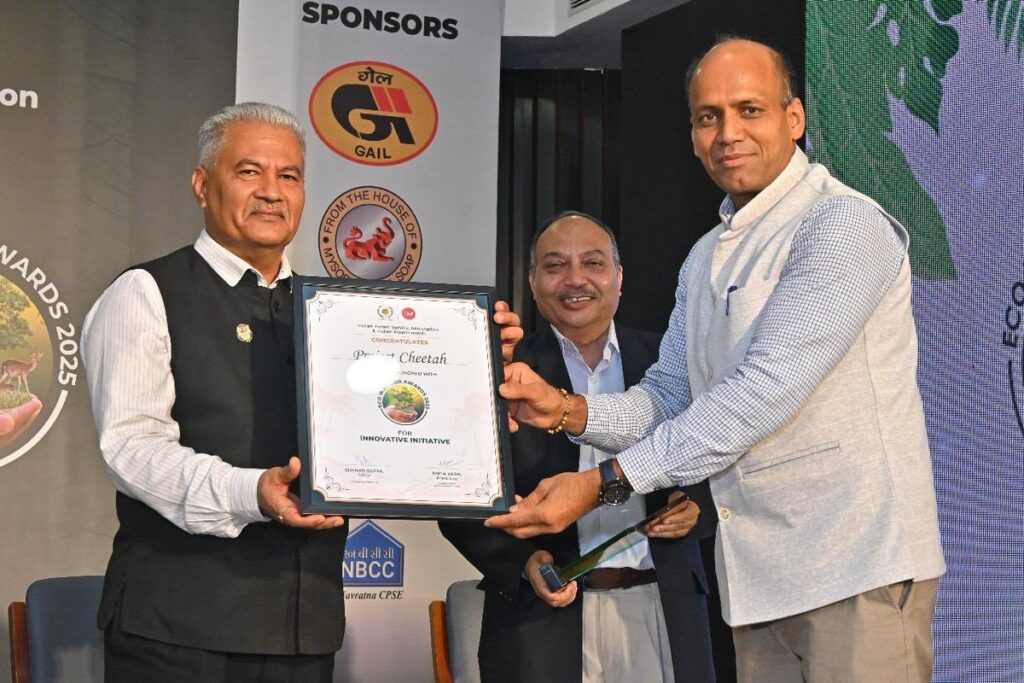In a moment of national pride at the India International Centre, Madhya Pradesh’s Project Cheetah was honoured with the Eco Warrior Awards 2025 for its extraordinary conservation success. At the heart of this achievement stands IFS Uttam Kumar Sharma, Field Director of Kuno National Park, whose leadership has scripted a new chapter in India’s wildlife history.
A Species Returns After 70 Years
Declared extinct in 1952, the cheetah was once India’s swiftest predator and a cultural icon. Under the vision of the Hon’ble Prime Minister and the relentless efforts of Sharma and his team, eight cheetahs arrived from Namibia in 2022, followed by 12 more from South Africa in 2023. Today, Kuno National Park is home to 28 cheetahs, including 17 born on Indian soil—a milestone once thought impossible.
Innovation Under Pressure
“No one in India had ever managed cheetahs before—it was completely new territory,” Sharma recalls. Operating under the Supreme Court’s approval for an experimental reintroduction, his team developed new protocols, adapted to changing conditions, and outperformed initial survival projections.

Why Cheetahs Matter
Beyond the thrill of rewilding, the project is restoring neglected grassland and savanna ecosystems. As coursing predators, cheetahs support a balance different from tigers or leopards—benefiting species like the Caracal and the Great Indian Bustard. “This is about reviving entire ecosystems, not just one species,” Sharma emphasizes.
‘Cheetah Mitras’: People Power in Conservation
Recognising that no project can succeed without local support, Sharma created 400 “Cheetah Mitras”—young volunteers from 80 surrounding villages. They monitor wildlife, educate locals, and foster pride in conservation. The payoff: tourism at Kuno has surged, matching the combined visitor numbers of the previous five years, creating jobs and transforming perceptions.
A National Vision for the Future
With two male cheetahs already relocated to Gandhi Sagar Sanctuary, Project Cheetah is moving toward a meta-population model. Ten sites have been identified nationwide, supported by a dramatically expanded Kuno landscape—from 35 sq. km to 1,800 sq. km—offering secure corridors for future generations.

Blueprint for Endangered Species
The success of Project Cheetah is inspiring similar efforts for other grassland species. “If we can bring back the cheetah, we can save the Caracal and the Great Indian Bustard,” Sharma says, outlining his broader ecological vision.
A Legacy of Leadership
By fusing science, strategy, and community, IFS Uttam Kumar Sharma has transformed Project Cheetah from a daring experiment into a globally admired conservation model. As India’s cheetahs sprint once again across the heartland, they symbolise more than wildlife—they reflect hope, resilience, and a new era of coexistence between nature and people.


